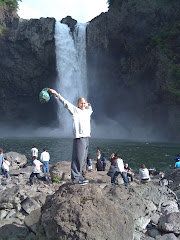In her article "French Quotidian," Kristin Ross writes, "'Everyday life', properly speaking, came into being only with the rise of the masses, when European cities began to swell with the arrival of large numbers of newcomers, when the lived experience of those new urban dwellers became organized, markets became common between the provinces and the capital, when everything [...] became calculated and calculable, and when objects, people, and the relations between them changed under the onslaught of such quantification. Only then, midway through the last century, and only there, in the large Western metropolises, did the world in Lefebvre's words, 'turn to prose'" (Ross 44).
I found this passage interesting because it dealt with the onset of "Everyday Life." It's interesting to note, according to Ross, Lefebvre, and even Marx - whom Lefebvre references in regards to this thought - all assert that Quotidian behaviors are not innate. They are then formed in reaction to societal happenstance. Thus, the idea of a private life, or a private sector versus a public identity is a socialized phenomenon. And it is what we humans do, privately, that these authors/artists/researchers are most interested in. If, in fact, this idea of an everyday life is a recent event in human history, it's interesting to note what specific factors appearing in modern society drove individuals to demarcate these uncontrolled and controlled sectors of life.
Ross touches on some of these key aspects when she mentions that the emergence of a calculating society sparked this trend. But what specifically about calculating cities where people are grouped together makes individuals demarcate themselves?
One idea that occurred to me while reading, was that people are bombarded by visual stimuli, interactions, and demands by others to perform. Perhaps, naturally, we are not wired to take in so much data at one time; and thus, the need and desire to separate and break off into our own worlds for a period of time alleviates this overloading.
If this is the case, I find the everyday motions of individuals to be comforting. It is a person's reset mode. We all do natural movements throughout the day - performing without much thought. I think these ostensibly nonchalant actions save us from being burnt out. And there is something sacred in our small and simple actions. So, in a way, wouldn't judging, bringing them to life visually, studying, and writing about them lessen their ability to sooth; making individuals more self-conscious about the way they spend their "everyday" time? And thus, tarnish this fabulous, self-preservation period? It seems to me that there is a reason people don't discuss our everyday activities: and not just because they are mundane and non-exciting; but, because they are our own. Our own little nuances, our own little chunk of time to act or not to act. So to bring our everyday quotidian to life would inadvertently perverse it: making it less "everyday".




No comments:
Post a Comment